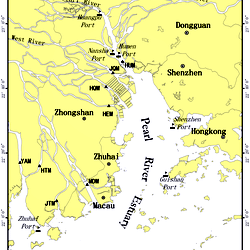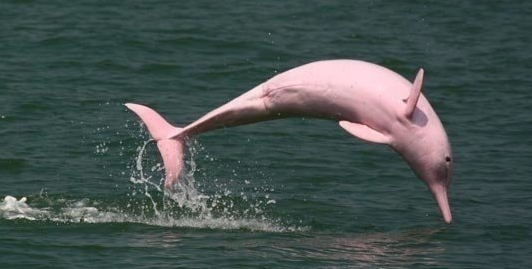UPSC Articles
Dolphins make a comeback in Pearl River Estuary
Part of: GS Prelims and GS-III – Environment; Biodiversity
In news
- According to a recent report, Chinese pink dolphins/Indo-Pacific humpback dolphins are making a comeback in the Pearl River Estuary (PRE).
Key takeaways
- Dolphins use echolocation to find their way in the water.
- The ships often disturb them in finding their way and even kill them.
- However, dolphin numbers in the waters between Hong Kong and Macau have seen a rebound in 2020 because Covid-19 pandemic has stopped ferries and hence reduced their traffic.
- The number of pink dolphins in the waters has roughly increased by a third according to scientists.
Important value additions
Pearl River Estuary
- It includes Hong Kong, Macau and the mainland Chinese cities of Shenzhen, Guangzhou and Dongguan.
- The Pearl River Delta is the low-lying area which surrounds the PRE where the Pearl River flows into the South China Sea.
- The Delta is one of the world’s most densely urbanised, heavily industrialised and busiest shipping lanes on Earth.

Indo-Pacific Humpback Dolphin
- Scientific Name: Sousa Chinensis.
- Habitat: Coastal waters of the eastern Indian and western Pacific Oceans.
- The World Wildlife Fund for Nature (WWF) has seen a decline in their numbers in the past 15 years by 70-80%.
- Threats: (1) Agricultural, industrial, and urban pollution; (2) Overfishing; (3) Marine construction; (4) Transport; (5) Selling into captivity at marine entertainment parks and aquariums
- IUCN Status: Vulnerable

Do you know?
- Echolocation is a technique used by bats, dolphins and other animals to determine the location of objects using reflected sound.
- This allows the animals to move around in pitch darkness, so they can navigate, hunt, identify friends and enemies, and avoid obstacles.














